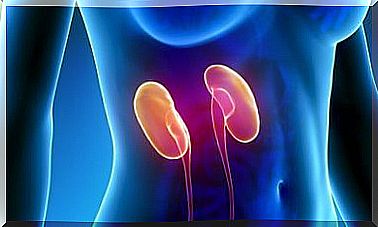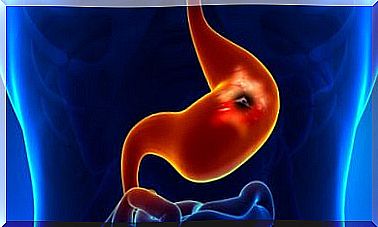Nervous Stomach Pain – What Can I Do?
Combine chamomile flower tea with aniseed to combine the healing properties of both plants.

Almost everyone knows nervous stomach pains. Those who suffer from stress and nervousness often feel it in their stomach: the consequences can be malaise, loss of appetite and nausea.
Stress and anxiety often affect the digestive tract and lead to nervous stomach pain.
Overwork, deep sadness due to a stressful family situation or work-related problems can affect our stomachs and cause loss of appetite or stomach upset.
In the following, we would like to explain the reasons for nervous stomach pain and give you some simple advice on how to calm your nerves.
Why do you get nervous stomach pain?

When we find ourselves in a stressful situation, our stomach notices it immediately. This organ has a special mechanism that is activated immediately when we feel hungry. In this phase we produce gastric juices.
However, when we are under pressure, worried, anxious, or stressed, our stomach slacks and does not function properly because our intestines stop making digestive juices.
This phenomenon is called dyspepsia and causes indigestion, bloating, heartburn, etc. When stress becomes everyday life, our digestion becomes imbalanced and affects our intestinal tract.
Vomiting, constipation or diarrhea can occur, which can lead to irritable bowel syndrome.
This ailment can affect anyone, young or old, man or woman. Stress is a disease that affects us all equally and is often the first one that makes itself felt in the stomach.
Advice on calming the nerves
Avoid carbohydrates: When nervous or anxious, many often tend to eat the first thing they find in the refrigerator or in the pantry in order to forget the problems with a feel-good effect.
Often it is industrial baked goods or sweets, i.e. foods that are of no use to us.
This has the following consequences: fat accumulates, toxins develop and our digestion is impaired because it slows down and can be painful.
If cravings arise between meals, you should resort to fruit. Eat an apple, a banana, or any other fruit that you find tasty.
Yogurt would also be a good alternative because it contains prebiotics that protect our intestinal flora. Try to avoid high-fat foods as these are very harmful to the stomach and intestines.
Soothing herbal teas are also recommended for relaxation. Some healing teas absorb iron, so we advise you not to drink them until two hours after meals.
Then we will introduce you to some recommended teas:
- Chamomile : Drink this tea two hours after every meal. A spoonful for a cup of boiling water is ideal for calming the stomach and relieving heartburn. Take this tea as warm as possible. Chamomile is particularly suitable for our digestive system because it has anti-inflammatory, anti-spasmodic, gas-relieving, etc.

- Passionflower : This herb relieves indigestion, is calming, anti-inflammatory, and soothes your nerves. Passion flower can be taken as a tea after meals, but it is also available in capsules.
- Melissa has an antispasmodic, calming effect and relieves muscle tension. One tea after every meal is enough to experience the beneficial effects of this plant.
- Anise : This plant is even used for small children, its excellent properties for stomach and digestion have long been known. It helps with flatulence and stomach pain and aids digestion etc. Anise is just perfect for protecting your stomach. Take two cups of aniseed tea a day and you will definitely feel the benefits.

- Clove : This plant is also helpful because it has anti-inflammatory and gas-reducing properties, and it relieves stomach pain. Boil 15 grams of cloves in 1 liter of water and let this tea steep. Then drink it half an hour before meals.









